
‘Finished Product’ Home & industrial
Certified compostable fruit labels
Minimize packaging & packaging waste with compostable fruit labels
Our certified compostable fruit labels deliver exceptional performance during their lifespan and crucial
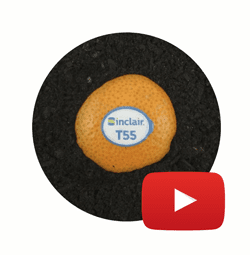
end-of-life and environmental benefits. Confirming and adhering firmly at high speed, our compostable labels remain intact through the supply chain to the retail shelf. At end-of-life, they break down and biodegrade into usable compost.
Complying with the latest regulations and composting standards, these labels offer an environmentally conscious solution to reducing the volume of single-use plastic and removing plastic waste from the supply chain.
View certificates.
Our certified compostable fruit labels
Remove plastic waste from your supply chain with compostable fruit labels.
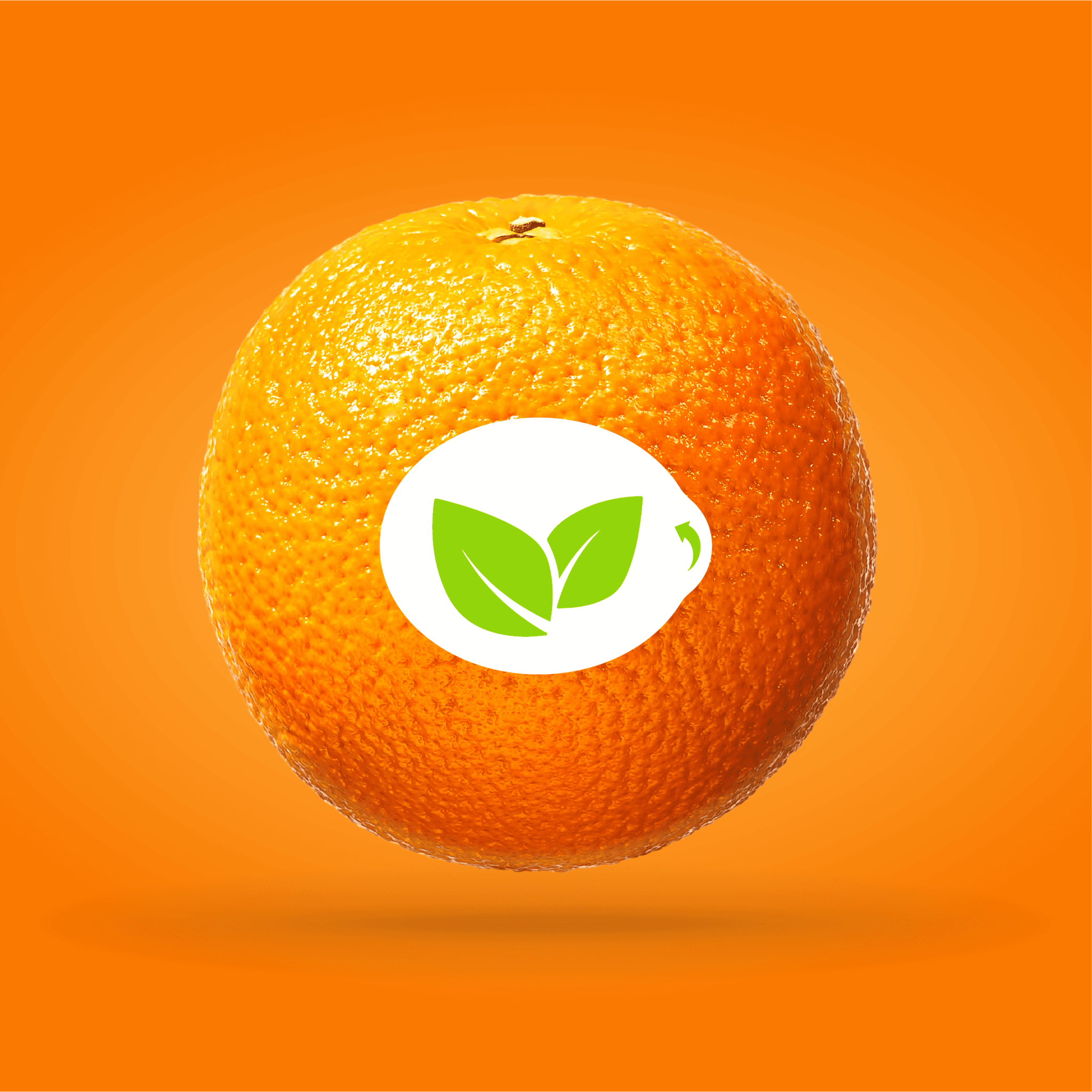
A compostable film label certified by TÜV AUSTRIA, DIN CERTCO, and ABA.
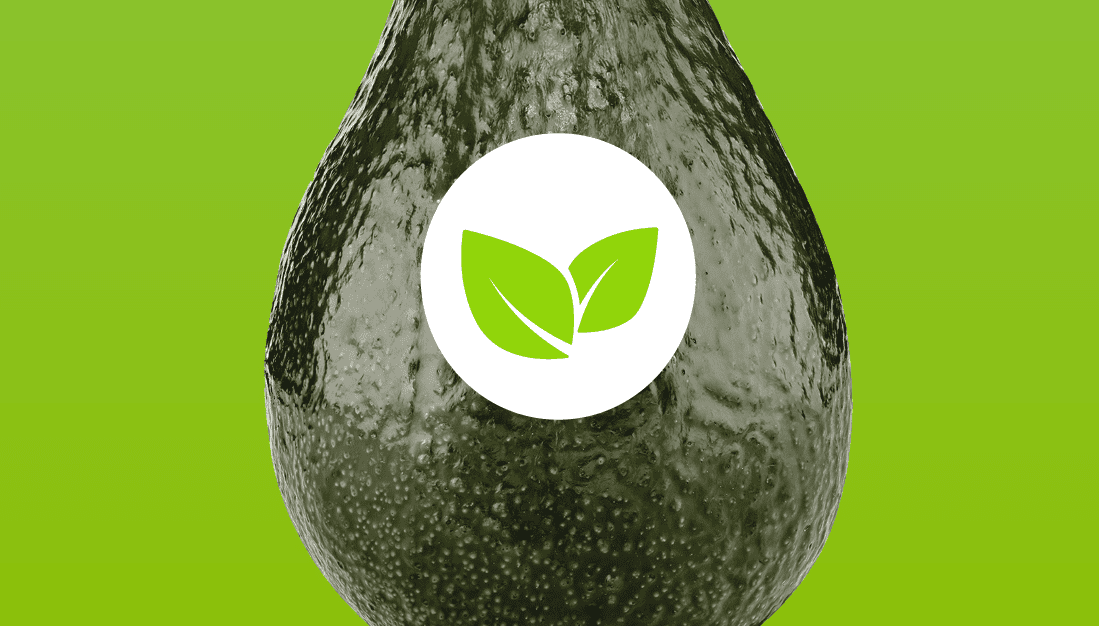
A compostable film label certified OK compost INDUSTRIAL by TÜV AUSTRIA.
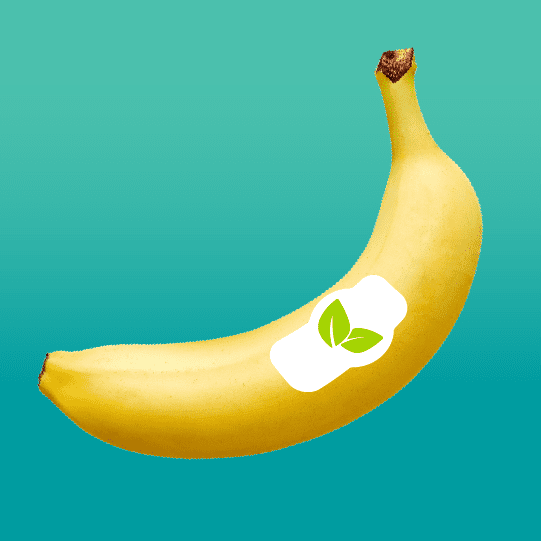
A paper label certified OK compost HOME® by TÜV AUSTRIA.
Key features
Certified end-of-life performance
Our compostable stickers break down and biodegrade to become part of usable compost. An environmentally friendly packaging choice with zero plastic waste after disposal.
Compliant
Our fresh produce labels comply with all home composting standards and current legislation.

One label for all markets
Sinclair – T55 home and industrial compost certification helps remove inventory complexity in the packinghouse.
Durable and compostable
The best of both worlds: Durable for the supply chain, compostable for the planet.
Application performance
Class-leading conformity and adhesion on application. Easily and quickly from edible skin fruits without sticky residue left behind.
Versatile application
Compostable fruit sticker solutions for all types of fresh produce. Use for both hand-applied and high-speed, automated Sinclair labeling systems.
Safe for direct food contact
Compliant with international food safety standards, making our fruit stickers safe for direct contact with all types of fruit and vegetables.
Certified compostable fruit label FAQ’s
- Reduced environmental impact: They ensure less plastic waste and pollution.
- Promotion of circular economy: They can be composted at home or industrial composting facilities and returned to the soil part of usable compost.
- Reduction of food waste: Using less packaging means fruit and vegetables can be sold loose. This can encourage consumers to be environmentally conscious, only buying what they need and not overbuying fresh produce in bulk packs.
- Positive consumer perception: They appeal to environmentally conscious consumers.
When choosing a compostable product, it should be certified by an internationally recognized certifying body such as TÜV AUSTRIA, DIN CERTCO and ABA or BPI.
Certification bodies only certify products that adhere to rigorous composting standards, such as EN 13432, NFT 51-800, and AS 52810. The certifications for our compostable fruit labels demonstrate compliance with these stringent home and industrial composting standards and demonstrate end-of-life performance can be trusted – our labels become part of usable soil-enriching compost.
Compostable and biodegradable are often used interchangeably, but they have distinct differences:
Biodegradable:
Biodegradable certified products return to nature by disintegrating or disappearing completely. While microorganisms can break down a biodegradable product, this process doesn’t always result in a material that enhances soil quality, such as compost. Moreover, there’s no strict timeframe for biodegradation, and in some cases, metallic or toxic residues may remain—a process still classified as “biodegradation.”
Compostable:
Compostable certified products, on the other hand, are broken down by natural processes into non-toxic components within a specific timeframe. for the end user to be sure something is compostable, it must be tested and certified by a third-party organization. Simply put, all compostable products are biodegradable, but not all biodegradable products are compostable.
Generally, you can check the packaging for a claim, either written or in the form of a logo with a license or certification reference. A claim of compostability must be underpinned with a specific license number or certificate reference. This is unique to a company or a product so you can check on the certifying body website certification validity and exactly what the certification is for exactly – component or finished product.
Industrial compostable:
- Conditions: Requires the controlled environment of an industrial composting facility, including specific temperature, moisture, and oxygen levels.
- Certified to EN 13432
Home compostable:
- Conditions: Will break down in a home composting environment, which has less controlled conditions due to variable temperature, moisture, and oxygen levels from location to location.
- Certified to EN 13432, NFT 51-800, or AS 5810, with specific requirements for home composting.
While component certification provides valuable insights into individual materials, finished product certification is generally superior for compostable products.
Real-world Performance: Finished product certification ensures that the our entire label, including all components will break down completely in a home or industrial composting environment. This is crucial because interactions between different materials can sometimes hinder the composting process.
Consumer Confidence: Finished product certification offers consumers clear and reliable information about the product’s compostability, building trust and encouraging responsible disposal.
Industry Standards: Certification bodies have rigorous testing standards for finished products, ensuring they meet specific criteria for biodegradability, compostability, and lack of harmful residues.
Environmental Impact: Prioritizing finished product certification for our products minimizes the risk of unintended consequences and contributes to a more sustainable future.
Component certification is useful for assessing individual materials but is not a substitute for finished product certification. Choosing a fruit label with ‘Finished Product’ certification allows an informed decision to be made based on the certification and supports a circular economy with peace of mind that there is no harm to soil, plants, or animals.
All our labels meet all EU and FDA food safety requirements for direct contact onto fresh produce.
We pride ourselves on our extremely high standards for food safety and quality. As regulations change, we are seeing an increase in demand for supplier questionnaires and corresponding food safety requests. We are committed to supporting our customers’ food safety programs, and to do so, we provide our customers with Quality Assurance and Food Safety (QAFS) and Declarations of Compliance.
Performance you can trust
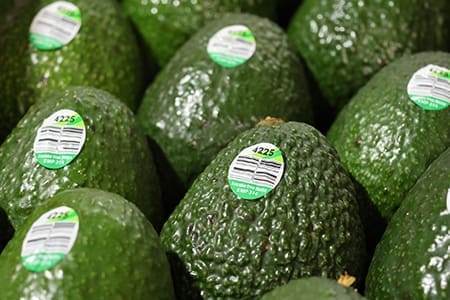

Performance you can trust
Every aspect of label performance is our priority. From the moment of application, through the supply chain to the point of sale, and then on disposal in home compost or at an industrial compost facility.
All our compostable label solutions are certified compostable so you can trust their performance at the end of their lifecycle.

